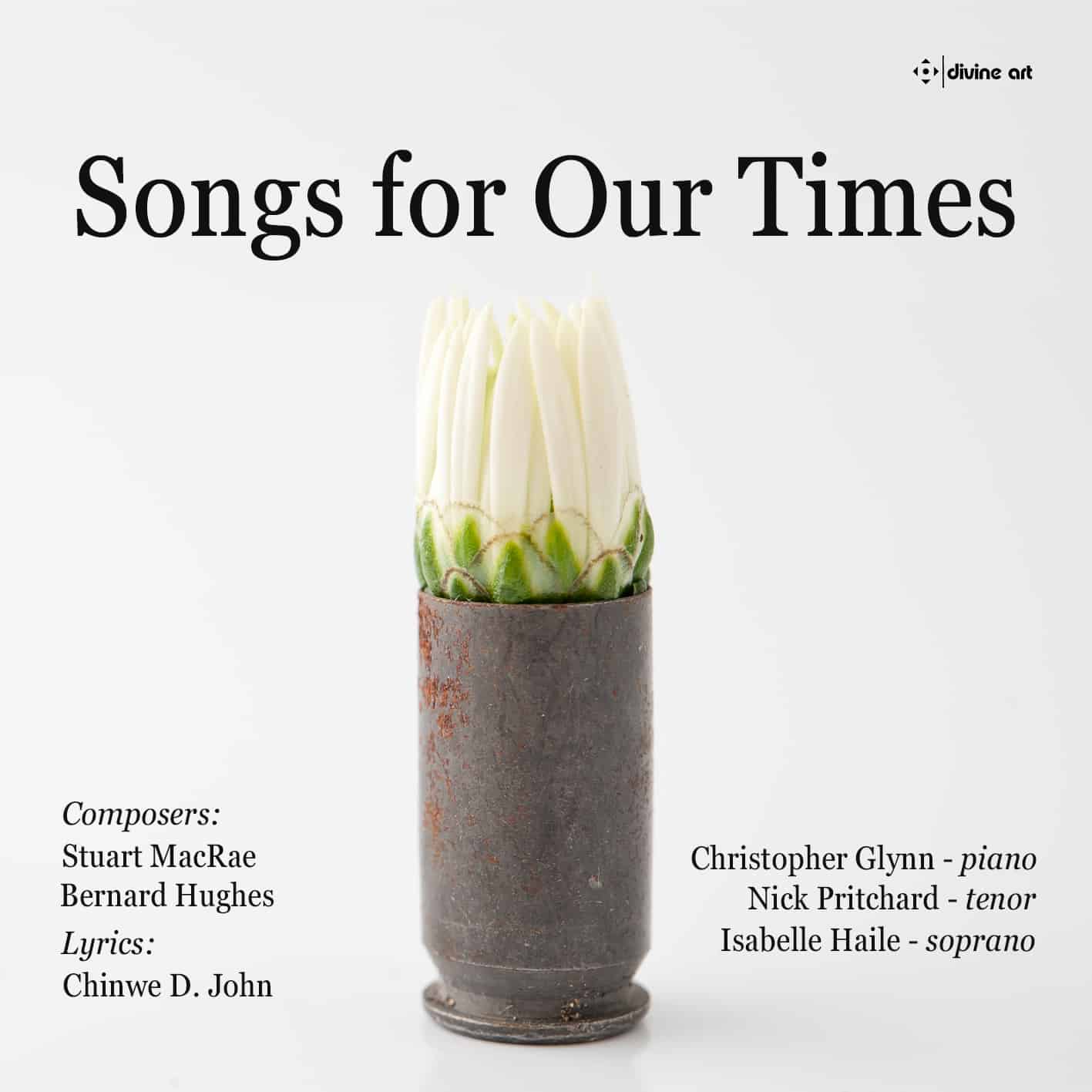Planet Hugill
A project initiated by poet Chinwe D. John, this disc presents two satisfyingly different contemporary settings of her work in intelligent performances
This remarkable project features two song cycles, Stuart MacRae’s Kingdoms and Bernard Hughes’ Metropolis, both featuring the words of Nigerian-American poet (and practising medical doctor) Chinwe D. John. This disc, Songs for Our Times on the Divine Art label, includes MacRae’s cycle performed pianist Christopher Glynn and tenor Nick Pritchard, and Hughes’ cycle performed by Glynn and soprano Isabelle Haile.
The project is very much Chinwe D John’s own. Feeling passionately about the need for classical music to expand its base, and also seeing the need to respond to the challenges facing UK-based musicians during the 2020, John was responsible for involving both composers and performers in creating the project. As a poet writing texts for songs John has a very clear, direct voice, with the ability to craft memorable, evocative phrases and use short bursts of lyricism. Rarely to her texts feel too wordy or two over-written, there is space for the music.
Stuart MacRae’s Kingdoms consists of four songs whose texts seem to take different thoughts about life in adversity (though the CD booklet not only includes John’s texts, but her thoughts on their meanings), here performed by Nick Pritchard and Christopher Glynn. The first song, Kingdoms begins with a lovely major/minor contention in the piano which crops repeatedly up during the song. Lyrical yet rather affecting, there is a sense of rapture here and Nick Pritchard brings a lovely sense of shape and musical line to MacRae’s music. Despite the rapture, words are important and clear, yet the whole is musically expressive. Life Unfiltered is delicate and intimate, yet with moments of quiet rapture, whilst Tethered Ships moves from quiet and intense to vivid rapture. The quietly lyrical Primordial City is folk-ish with jazz-like elements. MacRae and John have created a very approachable, intelligently lyrical cycle, yet throughout MacCrae has brought out the rapturous element in the music that links back to the 20th century English pastoral tradition (yes, I know that Stuart MacRae is Scots, but I don’t think the phrase 20th century Scots pastoral tradition would mean the same thing at all).
Bernard Hughes’ Metropolis consists of six songs which seem to explore aspects of living now, against a background of tradition. Here they are performed by Isabelle Haile and Christopher Glynn. The first song, The Shepherds is engagingly chatty with a hint of jazz in the rhythms. Haile sings with a lovely bright, focused soprano tone. Metropolis is rather intent, with a sense of stasis in the piano and incantations from Haile’s soprano over, then Call Home is engagingly jazzy. When Apart is rather conversational with an evocative piano behind. A Bedtime Tale has a recitative-like feel in the voice, complemented by rather rapturous piano accompaniment. The final song, The River’s Course is attractively jazzy, with a swing. In all the songs, Hughes brings out the poetically conversational nature of John’s texts, as if she is chatting to us, with Hughes giving us a series of imaginative takes on ways of expressing this musically.
It is unusual for a project like this to arise with the poet, but here John’s fine words are giving shape by two rather different but equally talented composers. The result is a disc that is satisfying in many ways, from the composers’ imaginatively intelligent lyricism and ability to create songs both satisfying to sing and musically expressive, to the fine performances from all the artists involved.
@divineartrecordingsgroup
A First Inversion Company
Registered Office:
176-178 Pontefract Road, Cudworth, Barnsley S72 8BE
+44 1226 596703
Fort Worth, TX 76110
+1.682.233.4978












